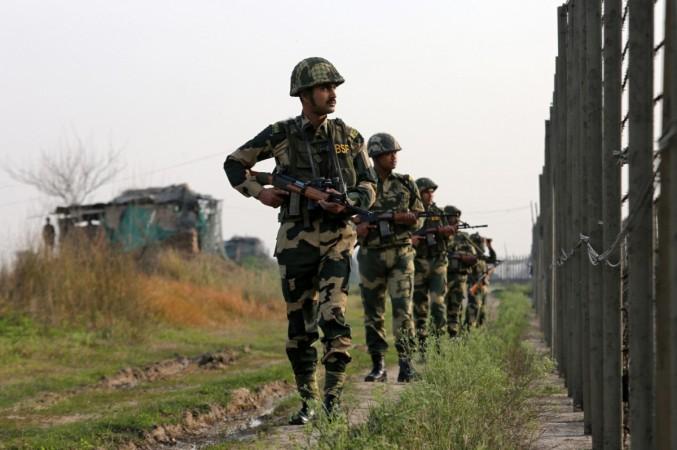
Hours after a BJP lawmaker claimed that the Chinese military had built a wooden bridge in Arunachal Pradesh's Anjaw district bordering China, the Indian Army dismissed the incursion and stated that area does not have permanent presence of either side.
Referring to the region as "Fish Tail", the Army issued a statement and clarified that due to "differing perceptions" along the Line of Actual Control (LAC), troops from both the sides conduct routine patrol. "The terrain is thickly vegetated and all movements are undertaken on foot along nullah and streams," an army spokesperson said.
The alleged bridge was said to be one of the many temporary bridges built by the patrol teams on the terrain during monsoons when the nullahs are in spate.
Claiming no permanent presence of either Chinese soldiers or civilians in the area, the army added that "civilian hunters and herb collectors also frequent the area during the summer months".
The clarification was issued after Arunachal Pradesh's BJP MP Tapir Gao claimed China's People's Liberation Army had intruded 60 kilometres inside the Indian territory and built bridges. Citing videos provided to him by party workers, Gao claimed that Chinese troops last month built a bridge over Kiomru Nullah in Chaglagam circle.
Where is Chaglagam?
Chaglagam is 100 kilometres from the McMahon Line which demarcates the Tibetian region of China from the North-east region of India along Arunachal Pradesh.
The region has witnessed intrusion by the Chinese military in the past. In September 2016, the Indian Army reported incursion after the PLA set up camp 45 kilometres inside Indian territory for four days. The Chinese troops retreated after a Flag Meeting was held at Damai, China between PLA and Indian Army in a bid to solve the issue.
Tensions between China and India heightened in 2017 after Indian forces halted the construction of roads by People's Liberation Army near a trijunction border area in Doklam. The disputed region is claimed by both China and Bhutan. Indian and Chinese troops called off the stand-off in Doklam after 73 days following multiple rounds of diplomatic talks between the two countries.
Following the Wuhan summit in 2018 between Indian Prime Minister Narendra Modi and Chinese President Xi Jinping, guidelines for the military of both the countries including restrictions on "aggressive patrolling" in the border regions were agreed to maintain peace between the two countries.
In the recent press issue, the Indian Army stated that both the countries have "well-established diplomatic and military mechanisms" in place to address all border-related issues. The Indian military spokesperson said that both India and China have "agreed to work towards a fair, reasonable and mutually acceptable settlement" on the issue of boundaries on the basis of the 2005 Agreement on Political Parameters and Guiding Principles.

















